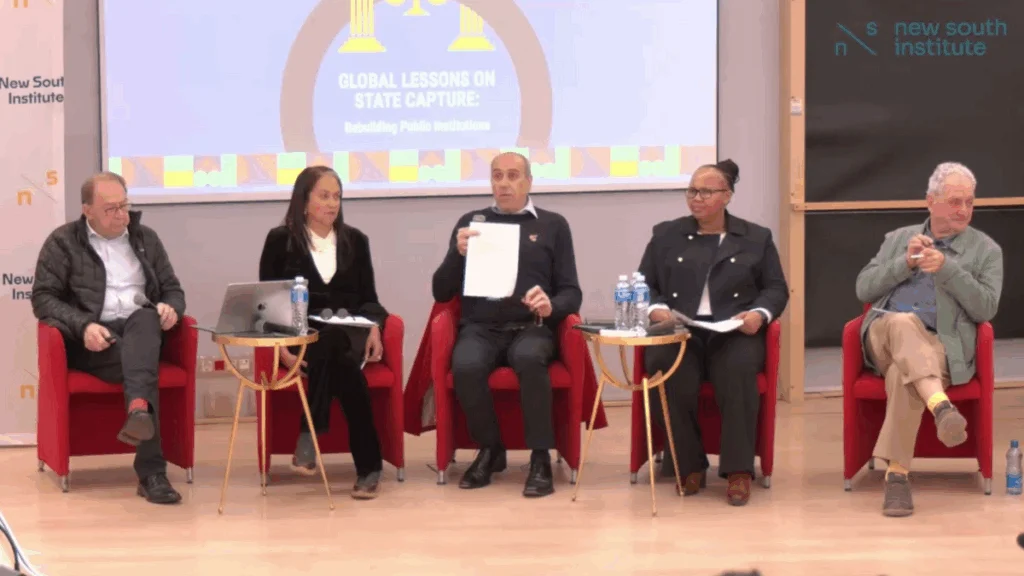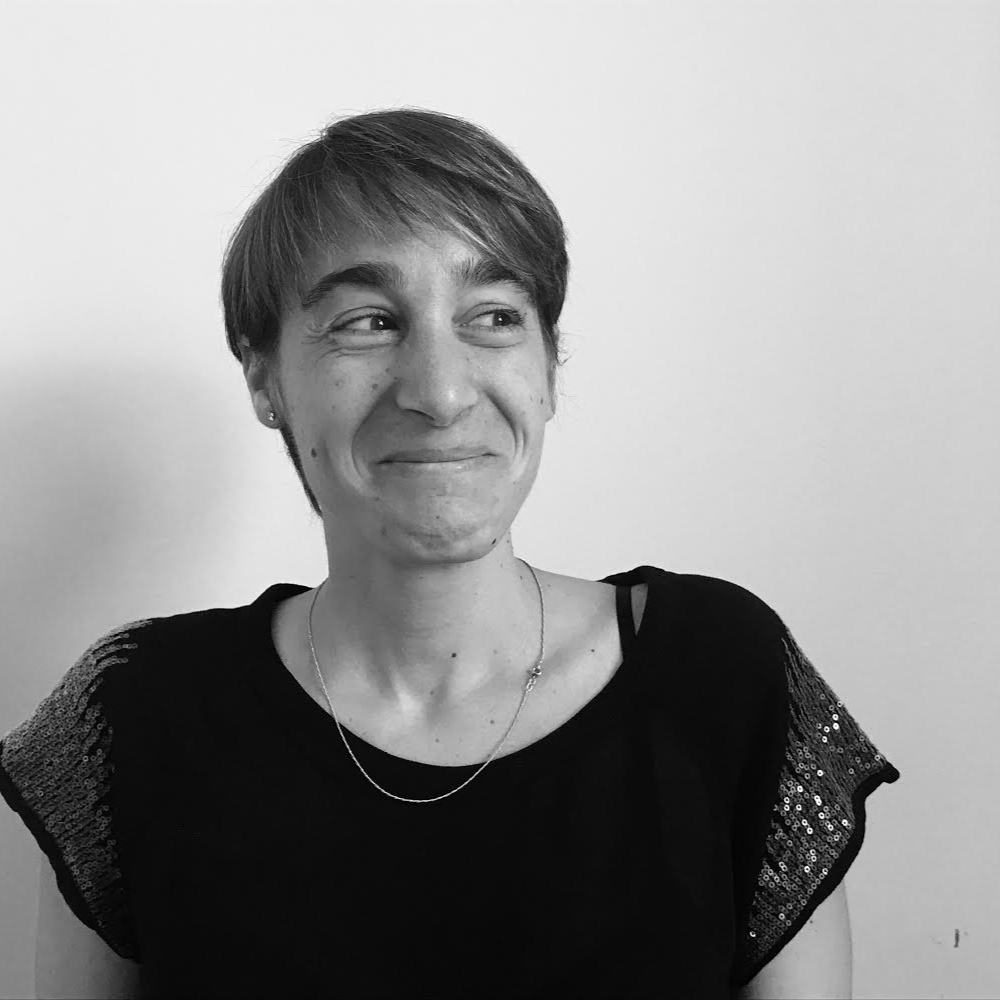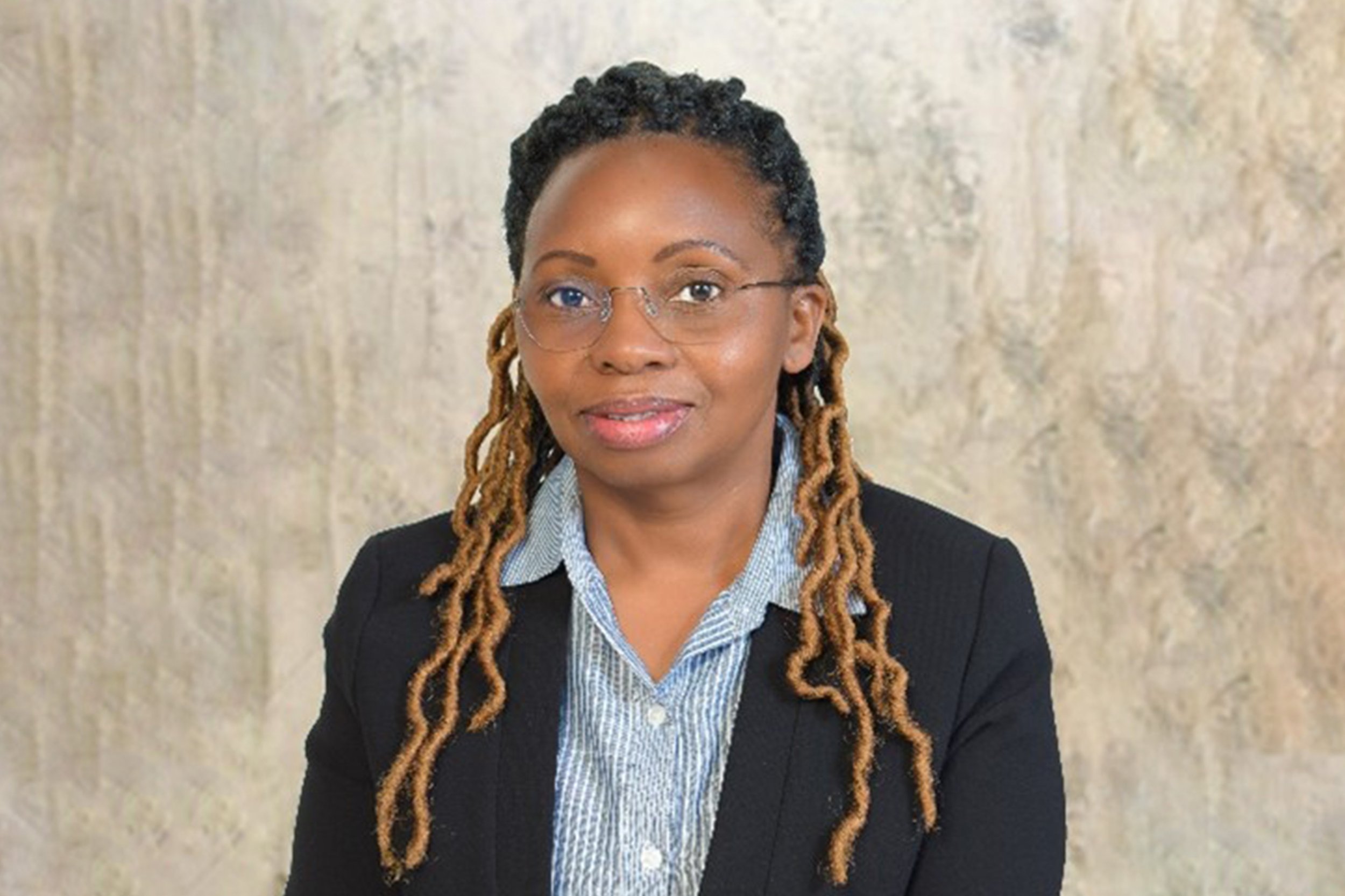State Capture: From Exposure to Strategy, Reflections from OTT 2025

What does it take to break the grip of state capture? At the OTT Conference 2025 in Johannesburg, we set out to answer that not as a theoretical question but as a practical and urgent challenge. Together with the New South Institute and OnThinkTanks, the Governance Action Hub hosted a special event titled: “State Capture: Moving from Analysis to Strategies and Action.” The conversation brought together voices who have lived, exposed, investigated, and are actively confronting the problem from within and outside the government.
The panel featured:
- Daniel Kaufmann, Senior Fellow at Results for Development and the Governance Action Hub
- Paul Pretorius, Lead Counsel of the Zondo Commission
- Ivor Chipkin, Executive Director, New South Institute
- Ferial Haffajee, Associate Editor, Daily Maverick
- Zodwa Xesibe, Special Investigations Unit
Each came with hard-won insights and helped move the conversation forward.
Naming the System
“State capture is not just corruption. It’s the privatization of public policy and decision-making by a powerful few,” said Daniel Kaufmann, who opened his session by laying out the global patterns. “It isn’t just breaking the rules. It’s rewriting them.”
He walked through five pillars where capture often takes root: the rule of law, economic policy, anti-corruption systems, narrative control, and transnational networks. Kaufmann emphasized that these aren’t abstract categories. They reflect real-world vulnerabilities that institutions must confront. “Capture is often legal by design,” he noted. “And deeply linked to inequality of influence.” And he made the stakes clear: “The costs of state capture are not marginal. They cripple electricity, health, education, ports—core institutions essential to development.”
Paul Pretorius grounded this in South Africa’s journey. “This was no ad hoc corruption,” he said. “It was a system—appointments, dismissals, procurement reorganization—all engineered to redirect state resources for private gain.”
He emphasized how deeply it reached. “Law enforcement, auditors, regulators, many of those meant to protect the state became complicit in its capture.”
And when asked how high it went? “We still don’t know how high the current syndicates go or who protects them,” he warned.
A Country in Recovery and Reform
But this wasn’t a session about defeat. Ivor Chipkin reminded the room that South Africa is currently undertaking one of the most significant state reform projects globally. “We are witnessing one of the most significant state reform projects in the world today, modernizing South Africa’s public administration to restore the line between political and administrative office.”
Chipkin also pointed to a key structural issue: “The blurred line between political leadership and state administration has long undermined institutional reliability. We are now actively working to reverse that.”
Ferial Haffajee placed the current struggle in a historical context. “The apartheid state was one of fundamental capture. State capture wasn’t new. But what we saw under democracy was a repurposing of that capture with new actors and devastating impacts.”
On the Zondo Commission – the public inquiry established by former president Jacob Zuma to investigate state capture, corruption and fraud in South Africa’s public sector – she highlighted its enduring contribution: “What the Zondo Commission gave us was a language to understand not just corruption, but the repurposing of institutions away from their public mission.” And she captured the national mood: “The Zondo years were a theatre of exposure, a wake-up call for those who saw corruption’s corrosive impact and wanted to resist it.”
From Exposure to Action
So what’s being done? Zodwa Xesibe described what happens after a national reckoning. “We’re working across entities—Special Investigating Unit (SIU), National Prosecuting Authority (NPA), Asset Forfeiture Unit (AFU), and Investigating Directorate (ID)—to prosecute capture-related cases. It’s slower than we hoped, but the collaboration is real.”
She shared that the institutional landscape is shifting. “We never anticipated the scale and complexity of systemic corruption. But now we’re building new strategies—and new tools—to fight it.”
And the effort is measurable. “We’re asking new questions. How do we digitize investigations? How do we use analytics? These are tools we didn’t think to use before,” she said. “We’re now tracking the president’s commitments to tackle state capture, and we’re at 63% implementation. That’s meaningful progress.”
Kaufmann also stressed that preventing capture is far more effective than trying to reverse it after the fact. “Once a country is fully captured, the tools to reverse it shrink dramatically.”
He reinforced that progress depends on good data. “If you can’t measure it, you can’t fight it,” he said. “That’s why we built a global index, to identify where capture is entrenched and where reform is possible.”
You can explore Daniel Kaufmann’s full presentation here.
What We Took Away
This session didn’t pretend that fixing state capture is easy, but it made one thing clear: it’s possible. South Africa’s case shows that even deeply captured systems can be exposed and reformed. It takes investigative courage, media independence, and reform-minded leadership.
At the Governance Action Hub, we’re focused on what comes next. On turning evidence into strategy, strategy into pressure, and pressure into change. We were proud to help lead this conversation.. And we’re committed to keeping it going across every system where public interest is at risk. Let’s keep building together.
Join the Governance Explorers
We are bringing together a global network of people eager to rethink governance and influence local, national and global debates.



